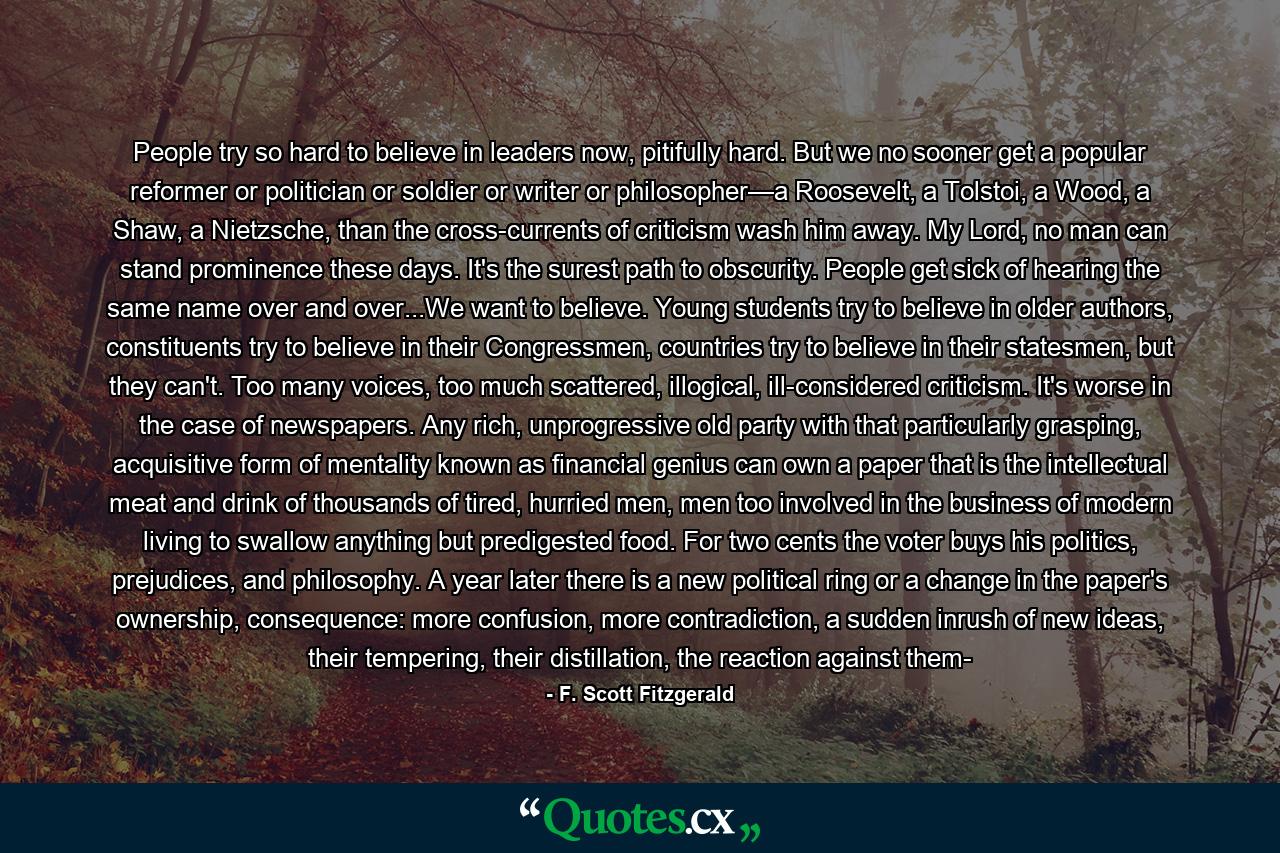People try so hard to believe in leaders now, pitifully hard. But we no sooner get a popular reformer or politician or soldier or writer or philosopher—a Roosevelt, a Tolstoi, a Wood, a Shaw, a Nietzsche, than the cross-currents of criticism wash him away. My Lord, no man can stand prominence these days. It’s the surest path to obscurity. People get sick of hearing the same name over and over…We want to believe. Young students try to believe in older authors, constituents try to believe in their Congressmen, countries try to believe in their statesmen, but they can’t. Too many voices, too much scattered, illogical, ill-considered criticism. It’s worse in the case of newspapers. Any rich, unprogressive old party with that particularly grasping, acquisitive form of mentality known as financial genius can own a paper that is the intellectual meat and drink of thousands of tired, hurried men, men too involved in the business of modern living to swallow anything but predigested food. For two cents the voter buys his politics, prejudices, and philosophy. A year later there is a new political ring or a change in the paper’s ownership, consequence: more confusion, more contradiction, a sudden inrush of new ideas, their tempering, their distillation, the reaction against them-
